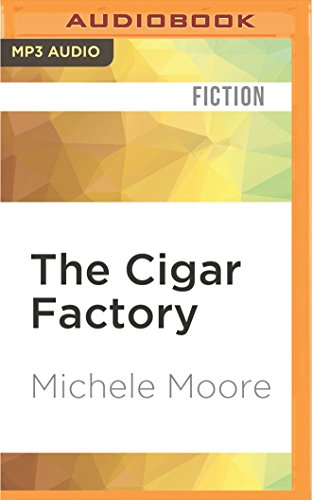
“The sun leaned for down bringing shade to the waterfront,” begins Michele Moore’s entrancing debut novel, harkening back to an era when the legendary fishermen of Charleston’s Mosquito Fleet rowed miles offshore for their daily catch.
With evocative dialect and remarkable prose, The Cigar Factory tells the story of two entwined families, both devout Catholics – the white McGonegals and the African American Ravenels – in the storied port city of Charleston, South Carolina, during the World Wars. Moore’s novel follows the parallel lives of family matriarchs working on segregated floors of the massive Charleston cigar factory, where white and black workers remain divided and misinformed about the duties and treatment received by each other.
Cassie McGonegal and her niece, Brigid, work upstairs in the factory rolling cigars by hand. Meliah Amey Ravenel works in the basement, where she stems the tobacco. While both white and black workers suffer in the harsh working conditions of the factory and both endure the sexual harassment of the foremen, segregation keeps them from recognizing their common plight until the Tobacco Workers Strike of 1945. Through the experience of a brutal picket line, the two women come to realize how much they stand to gain by joining forces, creating a powerful moment in labor history that gives rise to the civil rights anthem “We Shall Overcome”.
Moore’s extensive historical research included interviews with her own family members who worked at the cigar factory, adding a layer of nuance and authenticity to her empowering story of families and friendships forged through struggle, loss, and redemption.

Pat Conroy nailed it in the foreword. The voice and story in this book are moving. A delight to read and understanding the context and content of the language has been a gift. Thank you Michele!
This book should be on Oprah’s list! Opening this book takes you on a journey through two entirely different, yet similar working women. You get to know their families and their homes and employers. This is a must read!
It was factual and I appreciated the author’s writing in … It was factual and I appreciated the author’s writing in “Gullah” language. That was a fascinating aspect. However, I was not sure if this was a story about oppressing women, the spirit of Charleston, race relations of the time, social issues? It was all over the place as far a Theme goes.I think the author to general a topic and was not able to present one strong Theme. It was worth reading and I feel I did learn something.